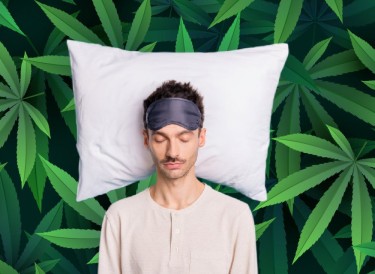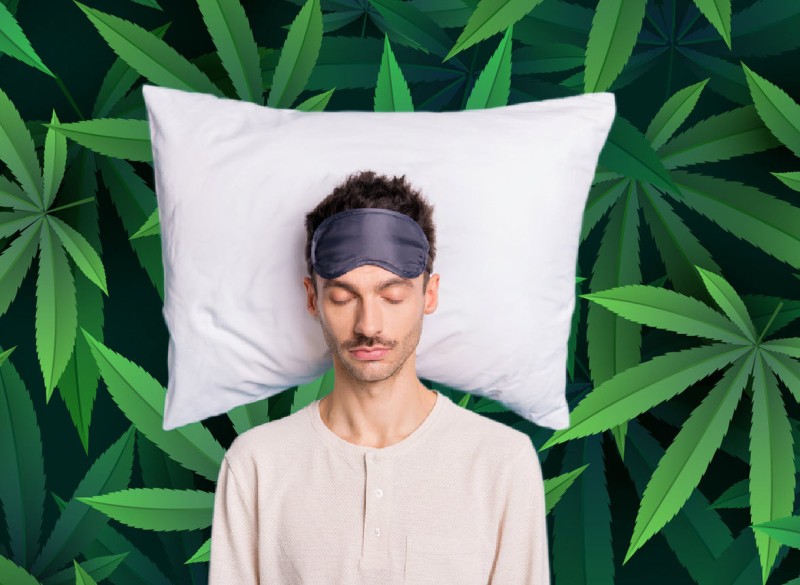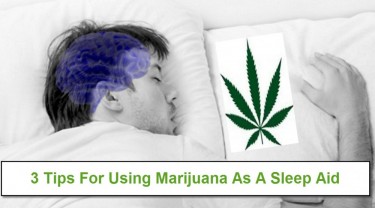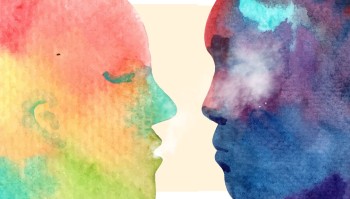
Did You Know That Over-The-Counter Sleep Aids Can Increase Your Risk For Dementia?
This Is Why You Should Be Using Cannabis Instead
When people these days have any trouble sleeping, it’s become almost default to reach for a bottle of melatonin, doxylamine, diphenhydramine, or other common over-the-counter sleep aids. Sure, they work.
But at a price.
It wasn’t until I began experiencing severe memory loss and brain fog at the age of 37 did I start looking into potential causes. I was worried that I could actually have early-onset Alzheimer’s when my husband began to voice his concern about my incredible forgetfulness. However, I did notice there was a week when my brain fog lifted and my cognitive function and memory improved.
I realized that that week, what changed was that I was weaning myself off my melatonin gummies.
So I did the research, and what I found was truly scary. Nobody tells you that melatonin and other seemingly harmless sleep aids can speed up the risk of dementia and cognitive decline.
The studies are there. In a recent study whose results were published in the January 2023 issue of the Journal of Alzheimer’s Disease, researchers analyzed 3,000 elderly adults who didn’t have dementia. The participants weren’t residing in nursing homes but participated in the Health, Aging, and Body Composition Study, and researchers followed them for around 9 years.
Over the course of the study, 20% of the study’s participants developed dementia. They found that, while there was a mix of white and black individuals enrolled, white participants who admitted to consuming sleep aids “often” or “almost always” were 79% more likely to get dementia compared to the participants who rarely – or never – used them. Other interesting findings from the study was that the white participants were 10 times more likely to be taking trazodone, which is a pharmaceutical antidepressant also used as a sleep aid. They also commonly took Ambien, a sedative that helps induce sleep.
The study concluded that heavy or frequent consumption of sleep aids could increase dementia risk, especially for white people.
Why does this happen?
There are several working explanations; one of these is the fact that specific types of sleep aids work by blocking acetylcholine (ACTH), a chemical found in the brain. When ACTH production is blocked, there is a significant risk for developing dementia. Several kinds of pharmaceutical drugs block the production of ACTH though the common drugs used for sleep include Benadryl, Seroquel, Hydroxyzine, Doxepin, and Elavil. Oftentimes, pharmaceutical drugs that have the ability to block ACTH are prescribed to treat existing health problems such as seizures, allergies, nausea, Parkinson’s disease or others… but it’s a side effect that they also block ACTH.
Dung Trinh, MD of the Irvine Clinical Research in California, tells WebMD: “Research has suggested a potential correlation between the long-term use of sleeping pills and increased risk of dementia.” He goes on to explain that the link isn’t thoroughly understood just yet, and we do need more research.
What About Melatonin?
Melatonin, a hormone produced naturally by the body, one that is responsible for helping us regulate our sleep and wake cycles, has also been produced synthetically to help people treat insomnia. Most people have the misconception that since melatonin is a hormone and taking it regularly does have positive health benefits, there would be no drastic side effects. However, most people remain uneducated about what could happen if you take melatonin in heavy doses or in the long-term.
Studies that go as far back as 2007 have shown that taking melatonin could have an impact on memory formation. The studies on these are limited as of now, and little is also known about other potential long-term risks, which is why it isn’t advisable to become dependent on any sleep aid out there.
Use Cannabis Instead
If you struggle with insomnia or sleeplessness, the good news is that pharmaceutical drugs aren’t your only option. More and more people are turning to various forms of marijuana to help them sleep.
Why pot?
It’s natural, safe, and effective for insomnia – even for long-term use.
In fact, there is a growing number of cannabis products out there designed for relaxation and sleep. Consumers can choose from a wide array of products to suit their consumption preferences: flower, edibles, oils, tinctures, and much more. You can also customize how you want to medicate, based on the types of effects you’re after; some people enjoy the intoxication brought about by high-THC products, while others prefer the relaxing state of CBD.
Regardless, there are a multitude of studies confirming the sedating effects of both THC and CBD. They work in a variety of ways to help people, especially if you are suffering from a chronic condition that prevents you from getting decent shut-eye such as pain.
As a bonus, cannabis has been shown to help reduce the progression of dementia!
Just be wary that medicating with high-THC products, or those that have a longer lasting effect such as edibles, can result in a weed hangover the following day. It all really depends on your tolerance and unique biochemistry.
Conclusion
Over-the-counter sleep medications may seem harmless because they aren’t regulated, but they are not. Long-term use can cause significant cognitive issues and memory decline, and they can make you extremely drowsy that you may no longer know or remember what you are doing. There are risks of overdosing as well.
Cannabis is a natural alternative and can help you get the shut-eye you need. Experiment with various forms of marijuana to determine which products are most effective for you.






